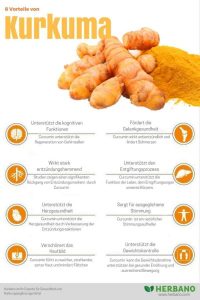Hemp and CBD products, hip, healthy, beneficial and more than a trend

Hip, healthy, beneficial – hemp and CBD products
Rich in anti-inflammatory, immune-stimulating and vitalizing bioactive substances, the undemanding useful plant hemp provides the human organism with a variety of health-promoting and beneficial substances.
The useful and cultivated plant hemp is currently one of the hottest superfoods. Due to their healing effects, Hildegard von Bingen used hemp already in the course of the 12. Century as anti-inflammatory, strengthening welfare herb. Since 1996, the agricultural cultivation of special hemp varieties has been permitted throughout Germany.
Such varieties of hemp fall into the category of useful and non-inflammatory substances. Fiber hemp and contain a maximum of 0.2 percent of the secondary plant compound THC, which is linked to a psychoactive effect.
The THC-poor fiber hemp unfolds no intoxicating effect and goes along with a high product security, so that high-quality hemp preparations exhibit exclusively raw materials, which possess a European-wide certificate of marketability.
Due to the continuing high demand for high quality hemp products, the trade has a rich assortment of hemp products ready for sale.
Tea from hemp leaves, hemp seeds, CBD tea, CBD oil, hemp oil as well as pastries, spreads and raw food bars containing hemp are especially popular among consumers.
Industrial hemp serves as a reservoir for healthy, anti-inflammatory substances
Medicinal hemp serves as a natural source of vegetable protein, polyunsaturated omega-3 fatty acids, vitamin E, iron, magnesium and calcium.
While the proteins dissolved in the fiber hemp target the production of new cells, boost metabolism and fat burning, stabilize blood sugar levels, fuel muscle growth and stimulate the immune system, the omega 3 fatty acids contained in the plant have an anti-inflammatory effect.
The polyunsaturated fatty acids effectively fight the body’s own inflammatory reactions and neutralize free radicals and oxidative stress, which promotes cell damage. As a reservoir of vitamin E, regular consumption of fiber hemp contributes to sustained cell protection.
At the same time, the vitamin optimizes the body’s own enzyme structure, fights free radicals and improves the signal and nutrient exchange between the individual nerves and cells.
In its capacity as a natural iron supplier, fiber hemp activates the formation of red blood cells and promotes an optimal blood and nutrient supply to the entire body.
Calcium dissolved in commercial hemp strengthens bones, teeth and skeleton. As a source of magnesium, fiber hemp supports the organism’s own enzyme systems. The magnesium bound in the plant also controls cell regeneration and energy production and regulates the body’s oxygen utilization.
Chinese medicine has always used hemp as a remedy for high blood pressure and loss of appetite.
Hemp as a beneficial plant with therapeutic potential
Modern medicine also uses medicinal hemp for the holistic, natural treatment of chronic pain, inflammation-related clinical pictures and for the effective treatment of nausea, spasticity, sleep disorders, loss of appetite, tics, which occur in combination with Tourette’s syndrome and symptoms of multiple sclerosis.
Since the 2017 calendar year, medicinal hemp or. Medical cannabis available in pharmacies throughout Germany in conjunction with a doctor’s prescription. Medical cannabis basically contains the substance CBD, respectively. Cannabidiol.
The secondary plant substance, which is also concentrated in CBD oil and CBD tea and has an antibacterial effect, docks on special CBD receptors in the human organism and triggers specific reactions of the body. However, various CBD products are now also available in hemp & CBD stores, both stationary and online.
The human body has CBD 1 as well as CBD 2 receptors that interact directly with the secondary plant compound CBD as well as CBD oil, respectively. Cannabidiol occurs, provided that a supply of CBD-containing products takes place. Such receptors are part of the immune system, central nervous system, skin, blood vessels, lungs, spleen, stomach, intestines, adrenal glands and heart.
The body responds to CBD intake with complex interactions that exert physiological effects. Accordingly, the receptor systems activate various neuromodulators as well as neurotransmitters that produce specific effects.




